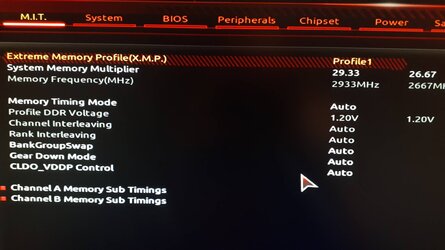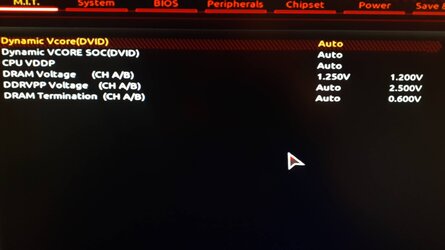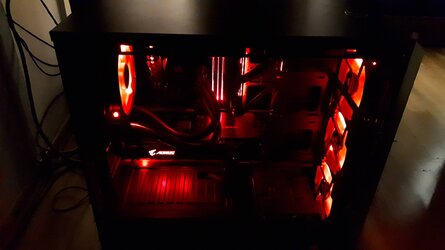Hi. I've been experimenting with RAM overclocking on my Ryzen system. See system specs in signature.
I want someone with experience to take a look at my settings as shown with pictures in this post and tell me if it's "safe".
System is rock stable and has no issues. I'll give a quick written summary of what I've done.
I've not touched timings or any other voltages so far. Though i did get my sticks to run at 14-16-16-16-35 and 15-17-17-17-35 with that 2993Mhz OC, but reverted as I got insecure about how to properly set timings.
Should i change any other settings in BIOS, or is it fine as it's set right now?



I want someone with experience to take a look at my settings as shown with pictures in this post and tell me if it's "safe".
System is rock stable and has no issues. I'll give a quick written summary of what I've done.
- Upped RAM Voltage from 1.20 to 1.25
- Upped RAM speed from 2667Mhz (XMP default) to 2933Mhz
I've not touched timings or any other voltages so far. Though i did get my sticks to run at 14-16-16-16-35 and 15-17-17-17-35 with that 2993Mhz OC, but reverted as I got insecure about how to properly set timings.
Should i change any other settings in BIOS, or is it fine as it's set right now?


